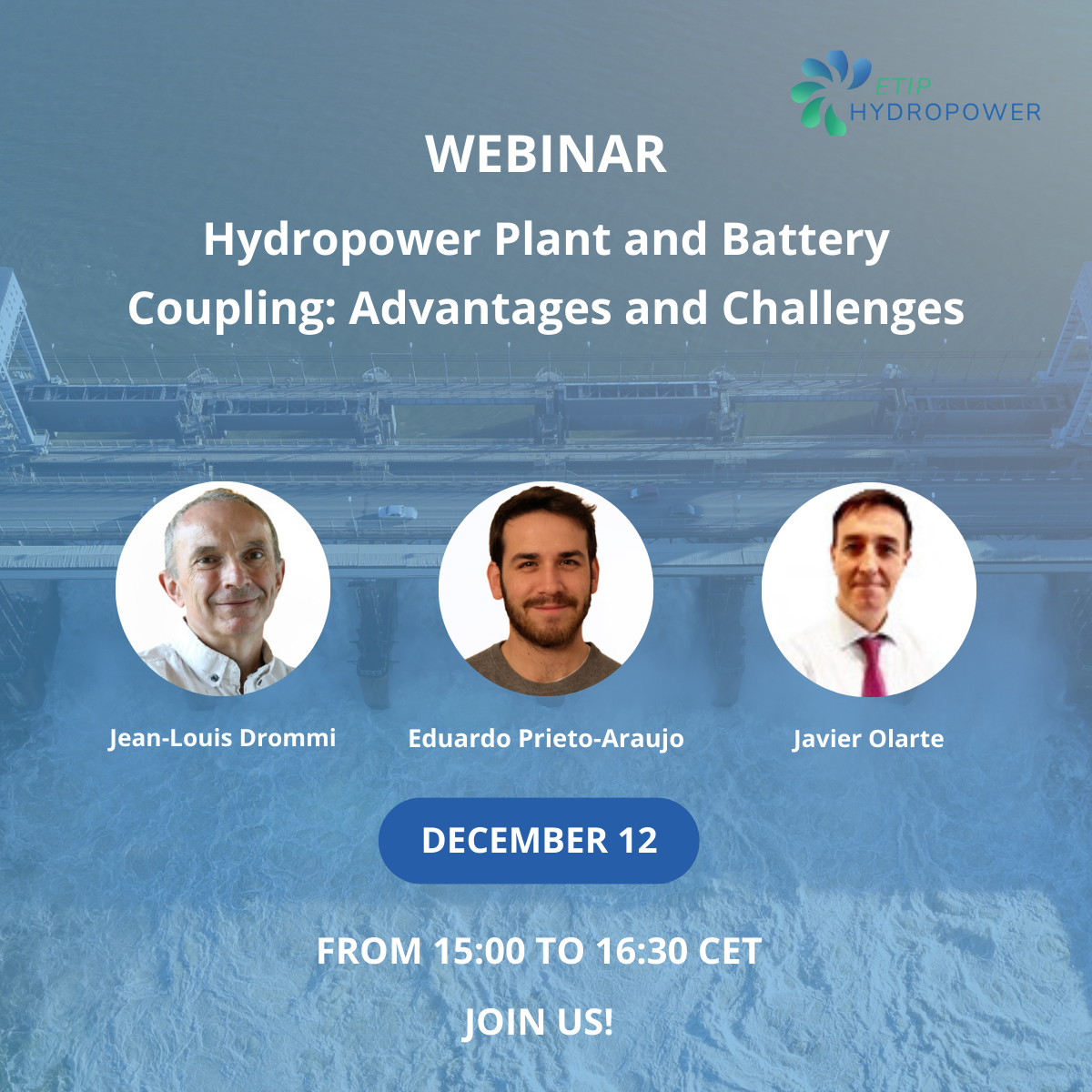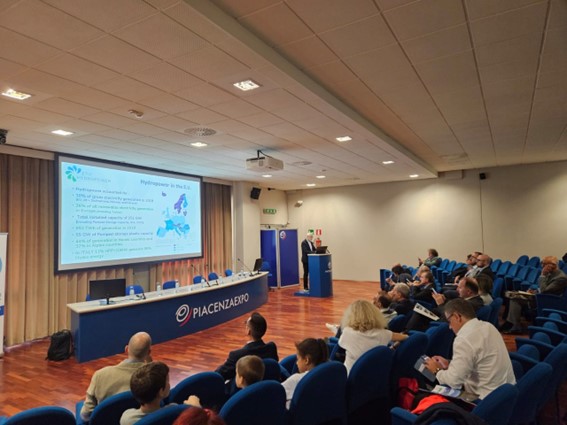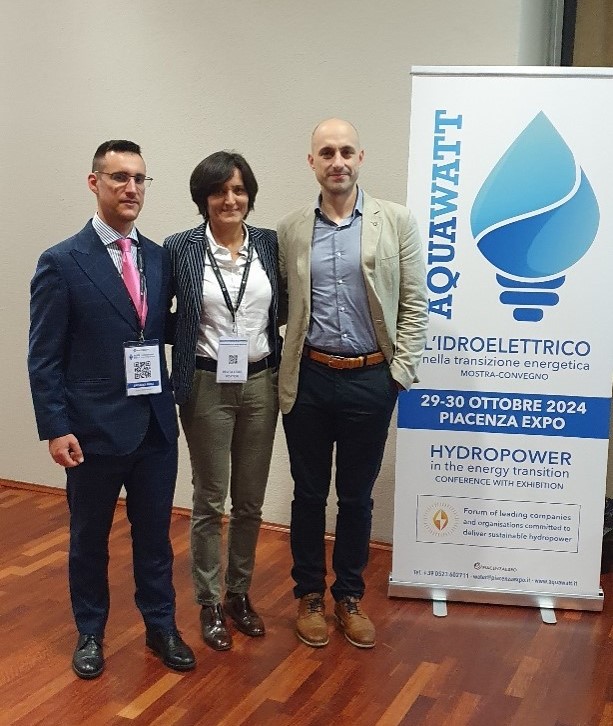UNIFYING THE VOICES OF HYDROPOWER
ETIP HYDROPOWER Webinar: Hydropower Plant and Battery Coupling
ETIP Hydropower will host a webinar titled “Hydropower Plant and Battery Coupling: Advantages and Challenges” on December 12, 2024, from 15:00 to 16:30 CET. This session will address the integration of battery technologies with hydropower plants, examining their impact on energy efficiency, operational flexibility, and sustainability.
The webinar will feature:
Jean-Louis Drommi, an expert engineer at Electricité de France, Hydro Engineering Center. He manages all electrical aspects of hydro projects both at design stage and maintenance. He develops innovation project such as variable speed, hybrid solution, flexibility improvement. He has been working at Electricité de France since 1987, in Hydro and Nuclear Division.
Eduardo Prieto Araujo, a Serra Húnter Associate Professor with the Electrical Engineering Department, UPC. In 2021, he was a Visiting Professor with the Automatic Control Laboratory, ETH Zürich. In 2022, he co-founded eRoots, which is a spin-off company of CITCEA-UPC, focused on the analysis of modern power systems. His research interests include renewable generation systems, control of power converters for HVdc applications, interaction analysis between converters and power electronics-dominated power systems.
Javier Olarte, with 35+ years in battery systems and energy storage, holds a Ph.D. in Control Engineering from UPV-EHU and is Technology Transfer Director at CIC energiGUNE and CEO of Battery Care. He co-chairs WG6 on Stationary Applications at Batteries Europe and previously chaired WG2 on Energy Storage at ETIP SNET.
Registration is open! https://attendee.gotowebinar.com/register/723401028994704477
HydroES 2025 Symposium to Address Hydropower's Role in Environmental Sustainability and InnovationThe HydroES 2025 Symposium on Hydropower and Environmental Sustainability with the theme "Hydropower, Innovation & Resilience" will bring together stakeholders from the water and hydropower sectors on September 17-18, 2025, in Grenoble, France. The event will showcase advancements in technical, scientific, and innovative solutions. ETIP HYDROPOWER will feature a special session during the symposium. Participants are encouraged to present their research, and submissions are welcome until December 13, 2024, via the official website (click here). 2. Energy Transition and Water Resource Management: 3. Digital Transformation and Modernization of Operations & Maintenance (O&M): 4. Issues and Challenges of the Hydroelectric Fleet: Special Technical Visit
|
WEBINAR: Boosting Hydropower: Best Practices for Research with SHERPA, RevHydro, and STOR-HYOn 6 December 2024, from 13:30 to 15:00 CET, the latest session in the webinar series “Boosting Hydropower: Best Practices for Research” will present the latest advances in hydropower technology. Organised by the ETIP HYDROPOWER project, this session will introduce three EU research projects and highlight the main conclusions of the 2024 report “Hydropower and Pumped Hydropower Storage in the European Union”. Featured Projects and Presenters:
The webinar will also feature contributions from Emanuele Quaranta of the Joint Research Centre (JRC), who will present the main findings of the Clean Energy Technology Observatory (CETO) Hydropower 2024 report, and Anton Schleiss from the International Commission on Large Dams (ICOLD), will be presenting ETIP HYDROPOWER. This webinar will provide an opportunity to learn about the latest research developments in hydropower across Europe. How to Join: Interested participants can register for the webinar HERE. You can find the agenda also HERE.
|
ETIP HYDROPOWER Hosts Workshops at AQUAWATT Conference on Hydropower’s Role in Energy Transition and Climate AdaptationETIP HYDROPOWER recently held two workshops at the AQUAWATT Conference, an event focused on hydropower’s contribution to renewable energy and climate resilience. AQUAWATT gathers stakeholders from the hydroelectric industry, government, research institutions, and associations to discuss advancements and collaboration opportunities in hydropower. The first workshop, held on October 29 and titled “The Role of Hydropower in the Energy Transition Process” included presentations from Jean-Jacques Fry on ETIP HYDROPOWER’s current projects, Matteo Bianciotto on the XFLEX HYDRO Project, and Emanuele Quaranta on the importance of pumped hydro storage for renewable energy goals. The second workshop, “Dams and Reservoirs: Climate Change Adaptation and Public Awareness Strategies”, took place on October 30. Antonella Frigerio provided an overview of ETIP HYDROPOWER’s Working Groups and discussed the impacts of climate change on water and energy security. Emanuele Quaranta spoke on the WEFE (Water-Energy-Food-Ecosystem) nexus in reservoir management, and Sera Lazaridou highlighted public awareness efforts, including the “Dam Day: Reservoirs for Europe” initiative. These sessions reflect ETIP HYDROPOWER’s efforts to promote sustainable hydropower and climate adaptation solutions through European-wide knowledge exchange.
|





